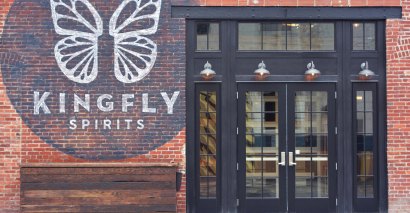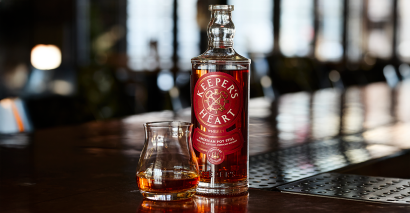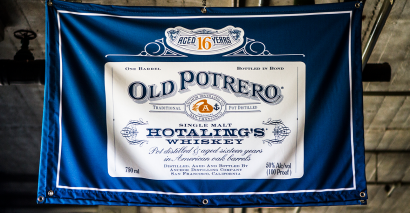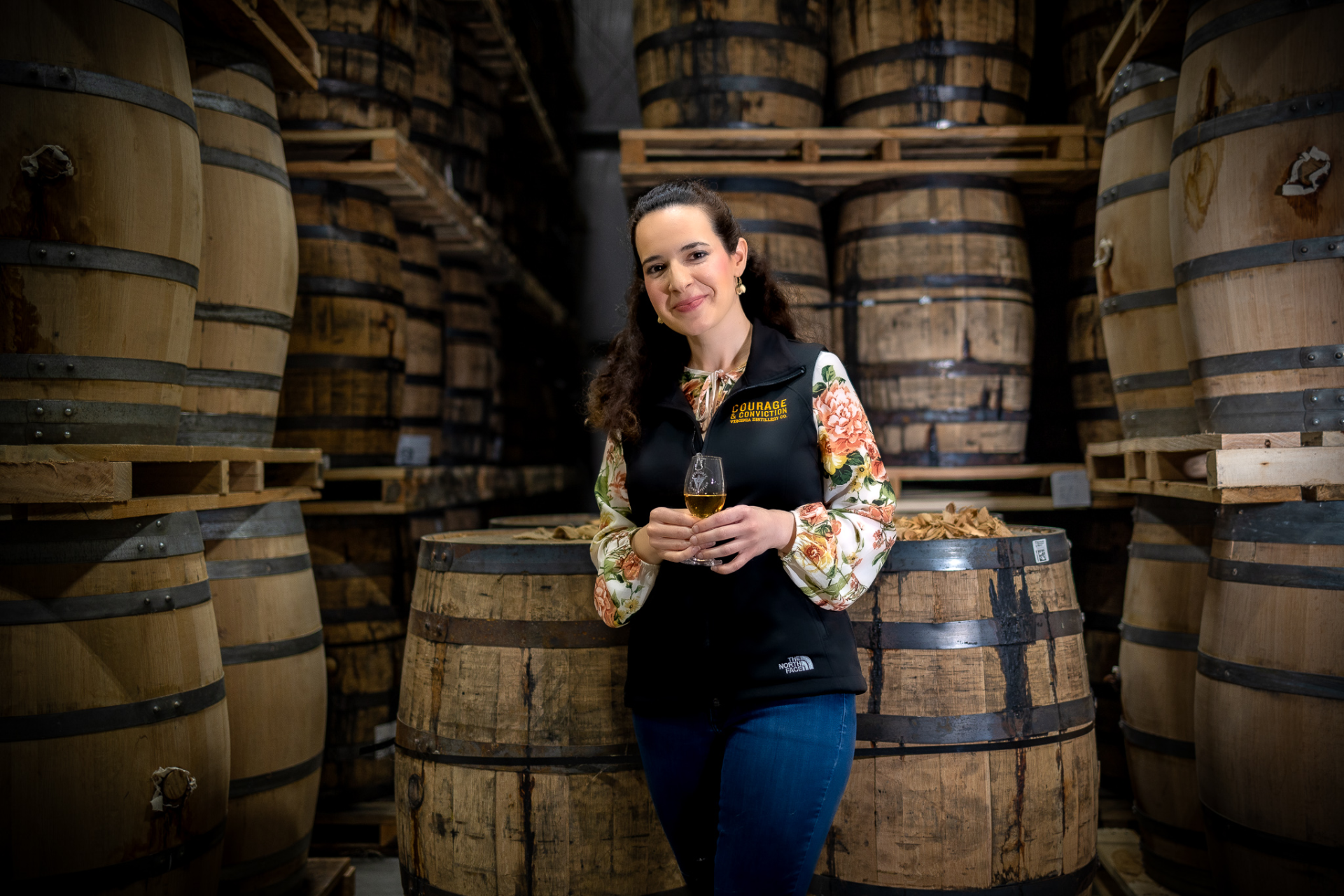
Virginia Distillery Co. has been experimenting with cider casks since 2016. Lead blender Amanda Beckwith (pictured) says these casks impart flavors of baked apple, walnut, and cinnamon. (Photo by Amanda Colocho)
Cider Cask Finishing: How Apples Can Enhance Your Favorite Tipple
December 16, 2022 –––––– Owen Bellwood
In 2018, scotch whisky distiller Glen Moray sparked debate with the release of its Cider Cask Project, the distillery’s single malt finished in hard cider casks. The UK-exclusive bottling had the sweet vanilla flavors characteristic of Glen Moray’s signature single malt, paired with caramel apple notes resulting from its time in cider barrels.
But it was a contentious bottling, as it was released before the rules governing scotch maturation were relaxed to allow use of barrels that had previously held other spirits like tequila, beer, and wine. The company got around those regulations by seasoning its own casks with cider from a local producer, before taking back the barrels to finish its whisky.
It was a first for a scotch distiller, but Glen Moray wasn’t the pioneer of the global whisky industry. In regions where the rules around maturation are less stringent, cider casks, ice cider, apple brandy barrels, and other fruity vessels are increasingly used to impart new flavors in whisky.
In 2016, Virginia Distillery Co. began its own experiments with cider casks. The distillery partnered with two Virginia cideries to provide a steady stream of its used whiskey barrels for them to use in aging their ciders. The barrels are then returned to Virginia Distillery Co. to age the whiskeys for its VHW cider cask finished expression.
“These cider casks impart aromas of green apple, pear, and honeysuckle with flavors of baked apple, walnut, and cinnamon spice joining in on the palate,” explains Virginia Distillery Co. lead blender Amanda Beckwith.
Turning to apple-seasoned casks is a practice that has flourished in the years since. In February 2022, Angel’s Envy bottled a rye whiskey that had been finished in barrels used to make ice cider–a wine-like drink made by fermenting the juice of frozen apples. “For our team, uniqueness was a big factor,” says Kentucky-based Angel’s Envy master distiller Owen Martin.
The Angel’s Envy’s release followed a similar bottling from New York’s Hudson Whiskey, which launched its experimental X Series range with a rye whiskey finished in cider barrels. For this offering, Hudson used a mashbill comprising 95% rye and 5% malted barley. It was aged in new American oak barrels before being finished in casks seasoned with cider from Minard’s Farm, an orchard just 15 minutes from Hudson’s distillery.
Hudson Whiskey chief distiller Brendan O’Rourke believes rye whiskey is the obvious choice when pairing with the flavors of fresh apple cider. “Due to the natural sweetness of the cider, we wanted something that would create a balanced finished product. Our rye has lots of spice, along with fruit notes (apricot and citrus), and is fantastic in cider cocktails, making it a natural choice,” he says.
But rye isn’t the only type of whiskey that works well with a cider-cask finish. Ireland’s Tullamore D.E.W. has been offering its own spin on cider-aged whiskey since 2015.
“The cask needs to complement the spirit, rather than compete with it,” explains Brian Kinsman, master blender at William Grant & Sons, which owns Tullamore D.E.W., Balvenie, Glenfiddich, and other whiskies. “Cider casks are more likely to work well with naturally sweet, floral, and fruity distillates to accentuate the naturally occurring flavors.”
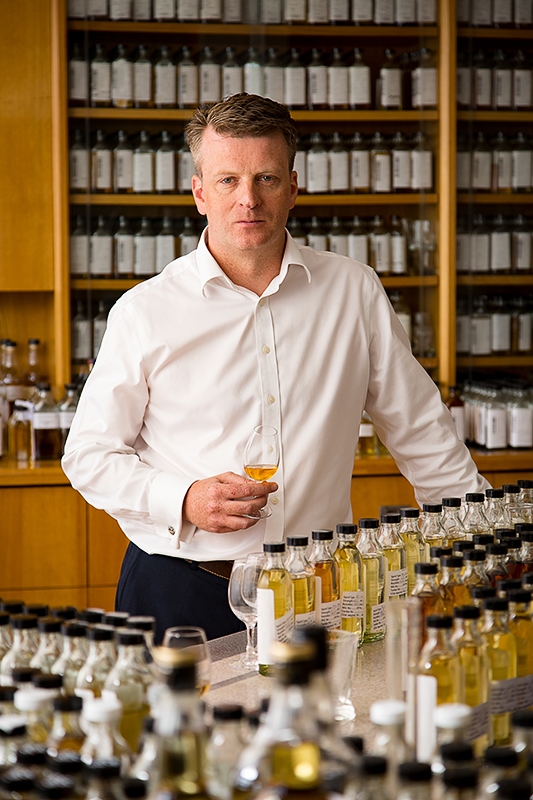 William Grant & Sons master blender Brian Kinsman.
William Grant & Sons master blender Brian Kinsman.
Pairing the style of base spirit effectively with the cask is a challenge that befalls most whisky makers. With a port or sherry cask-finished bottling, the rich flavors from the finishing cask must not overpower the whisky. And, while this same balancing act is true of spirits aged in cider barrels, the practice does come with additional issues.
“One of the more unusual challenges was at the filtration stage,” says Kinsman. “The cider casks had some of the organic debris from cider maturation, such as very fine yeast and apple pulp. This was not immediately compatible with the typical whiskey-filtration process and caused our technical and bottling teams some challenges. Thankfully, they enjoy a challenge.”
As well as the technical difficulties of creating a cider cask-aged whisky, there’s one other important question: What happens to all the cider that’s been sloshing around in the barrel?
At Hudson, the cider was fermented and distilled into vodka and brandy after it had been used to season its casks. But the ties between cider and whisky go deeper, and there is a wide range of whisky-aged hard ciders out there.
Now, with distillers looking to push the flavor envelope further, it’s likely that we will see more whiskies aged in cider casks. If the results of such experiments at Glen Moray and Virginia Distillery Co. are anything to go by, that wouldn’t be a bad thing.
Five Cider Barrel-Aged Whiskies to Try
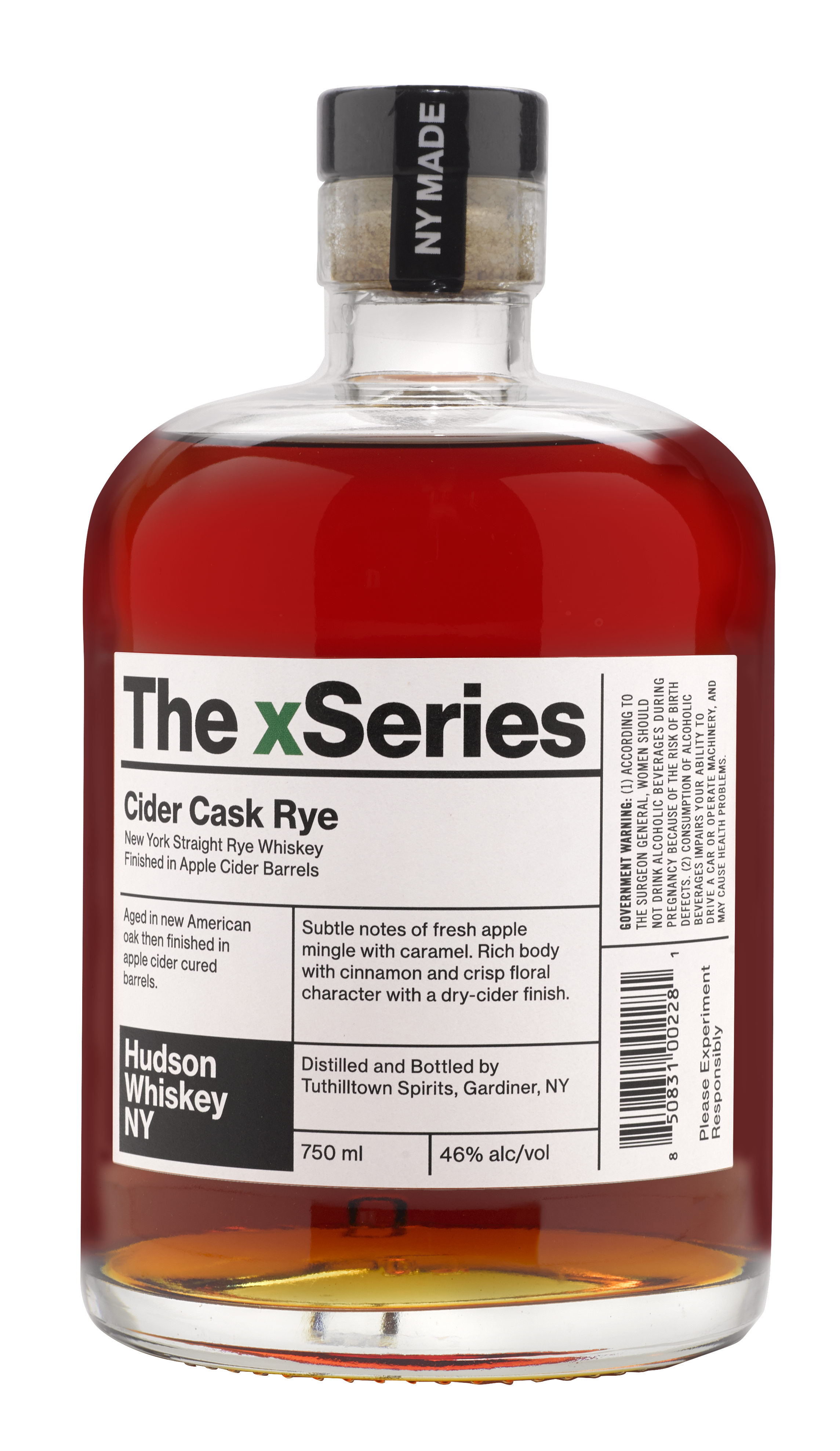
Hudson Whiskey The X Series Cider Cask Rye, 46%, $55
The first in a series of experimental bottlings from Hudson Whiskey was aged in American oak before finishing in apple cider-cured casks for three months. (Limited release; distillery exclusive)
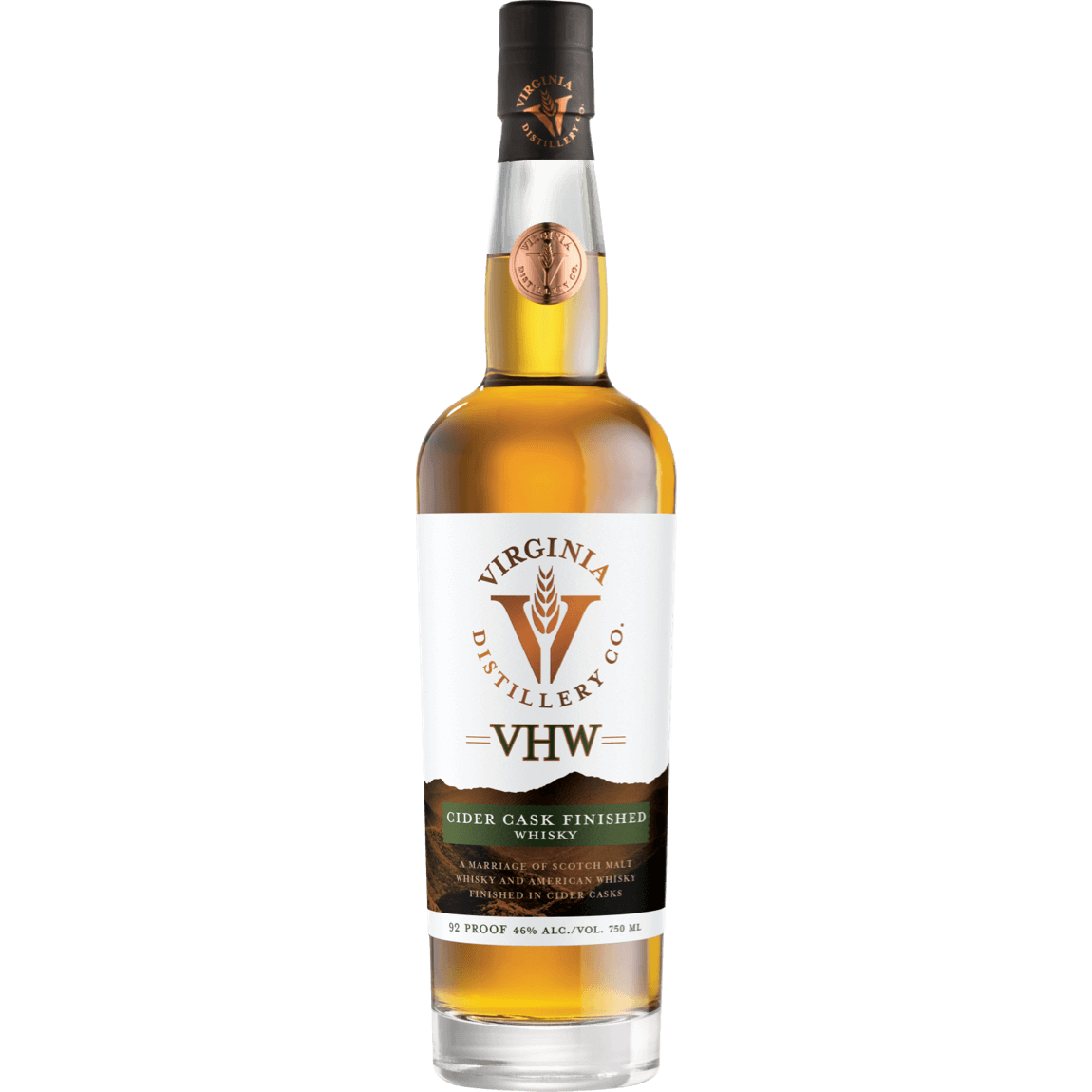
VHW Cider Cask Finished, 46%, $50
This whiskey from Virginia Distillery Co. comprises its American single malt and scotch malt whisky that are blended and finished for 8 to 20 months in barrels from local Virginia cideries. Batch 3 landed at No.-13 in our 2018 Top 20 Whiskies of the Year.
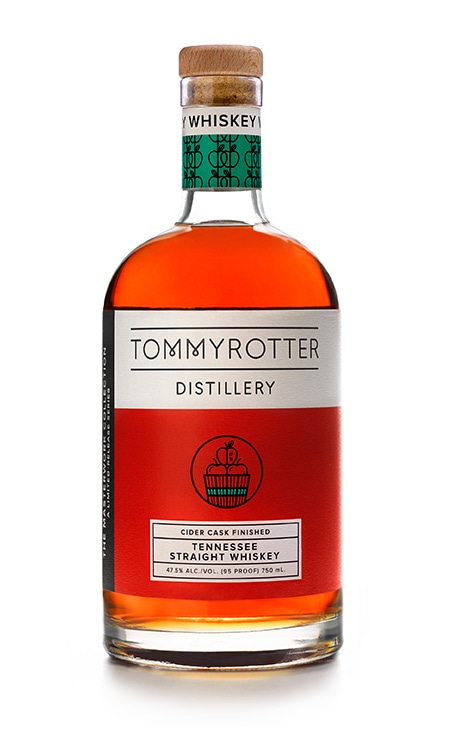
Tommyrotter Cider Cask Finished Tennessee Whiskey, 47.5%, $60
Distilled using a bourbon mashbill but aged in re-charred barrels for 7 years, this whiskey was finished in hard apple cider casks from New York-based Black Bird Cider Works. It earned 90 points in our Buying Guide.
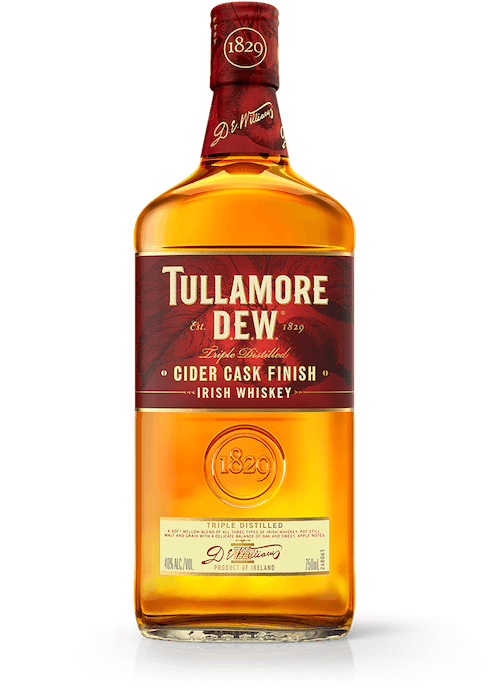
Tullamore D.E.W. Cider Cask Finish Irish, 40%, $30
Tullamore D.E.W. Irish whiskey spends three months in bourbon barrels that have been seasoned with cider to impart fresh apple flavors. Our Buying Guide panel rated it an 89.
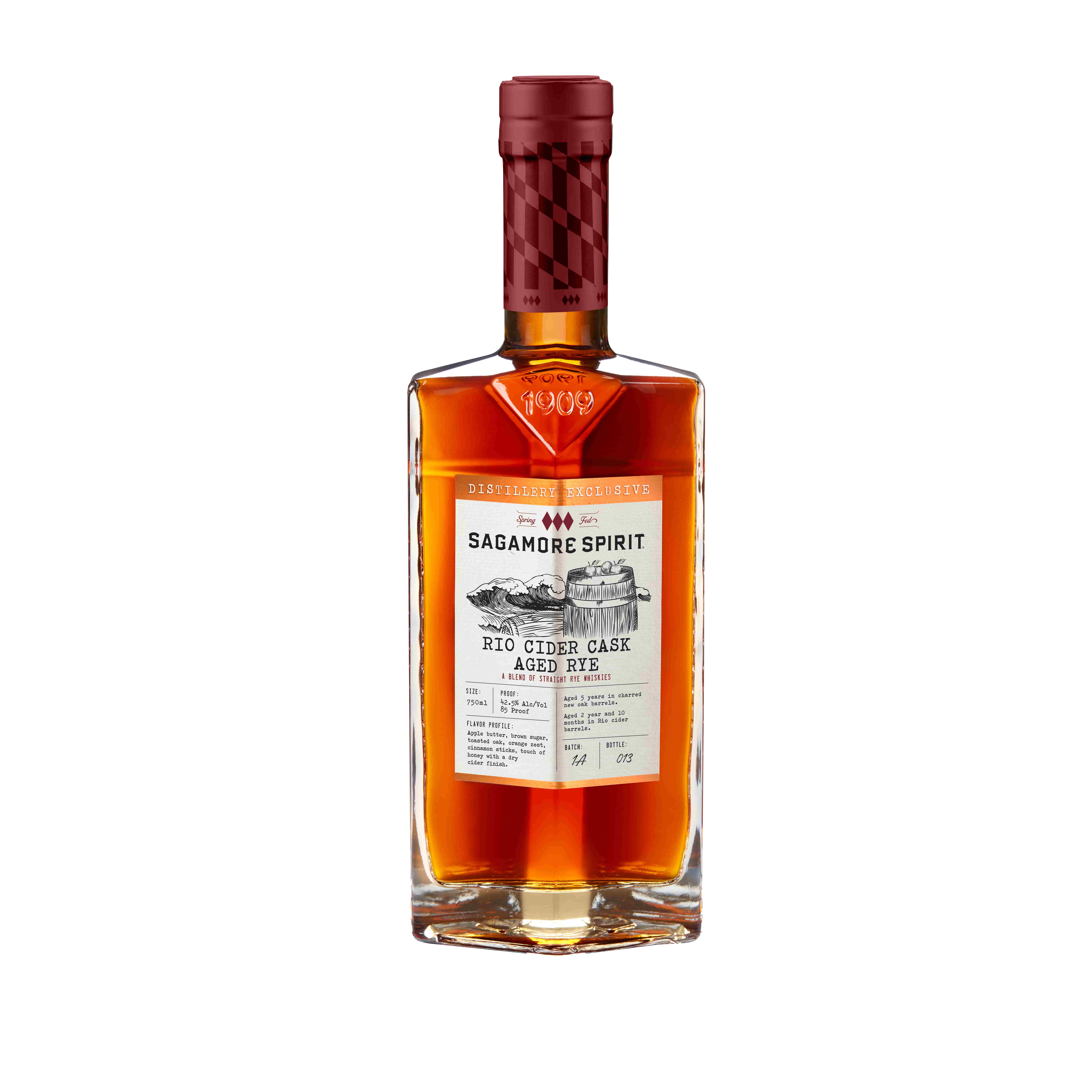
Sagamore Spirit Rio Cider Cask Aged Rye Whiskey, 42.5%, $79
A 4 year old rye whiskey from Sagamore Spirit is aged an additional 2 years and 10 months in cider barrels sourced from the Distillery Lane Ciderworks in Maryland. (Limited release; distillery exclusive)


